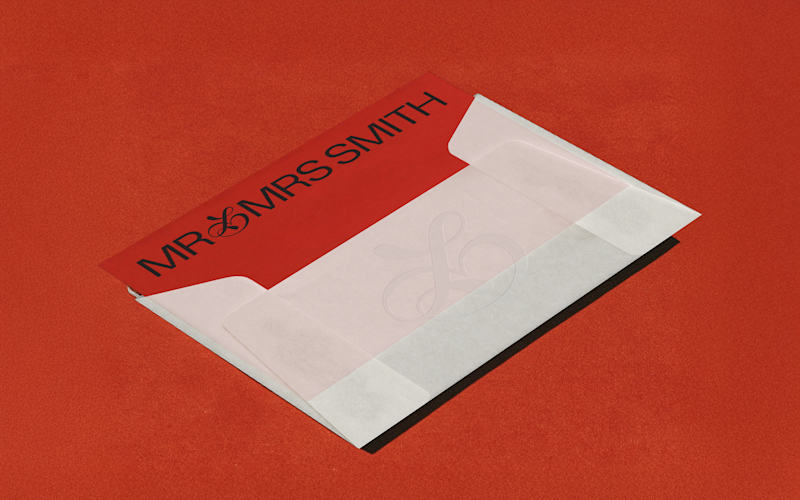The Johri is just a 15-minute walk from the city centre and its fairytale pink palaces and cavernous stepwell. You’ll find it amid the enthralling chaos of Johri Bazaar, famed for its jewellery.
Planes
Jaipur International is the closest, just a 30-minute drive from the hotel; the concierge can help to arrange a pick-up. It has direct connections across India and with some nearby countries (Bangladesh, Thailand, Oman, Qatar), but visitors from anywhere else will need to connect via New Delhi (an hour’s flight) or Mumbai (a two-hour trip). Those with stamina could make the drive from New Delhi, which is around five hours – you can break up the journey with a wildlife-spotting stop at Sariska Tiger Reserve.
Trains
While it’s not always the most luxurious form of transport, India is well connected by train. Jaipur Junction station is a 15-minute drive from the hotel (transfers can be arranged), and you can ride here direct from New Delhi in around five hours.
Automobiles
The winding lane the hotel sits on is too narrow for cars to navigate it, but you can park on the main Johri Bazaar road close by. The question, really, is do you want to drive? India’s traffic is notoriously sanity-sapping – drivers play fast and loose with highway codes and roads are an obstacle course of scooters, bikes, tuk-tuks, wayward cows and occasionally more exotic beasts. Absolutely consider a private driver if you decide to road trip it. The hotel can help with hire.
Worth getting out of bed for
Disorderly yet dazzling, Jaipur – Rajasthan’s pink heart – is a lot and has a lot to love. Its spectacular examples of Rajput architecture (with a few Mughal and Neoclassical flourishes) – including forts, palaces and sprawling hawelis in shades that run from blush to terracotta – impress on a grandiose scale, but it's the fine details that captivate. Say, the Hawa Mahal’s honeycomb of nearly 1,000 intricately screened windows and jharokhas, from which royal ladies could modestly watch the outside world during purdah; the zig-zag geometry of the Chand Bawri’s (stepwell) staircases; and the complex compositions of mirror, tile, latticework, carved marble and embroidery that make the City Palace a stand-out in a place rich with show-offs. It’s no surprise the royal family still resides there. Even the city’s protective fortifications flaunt its magnificence; Nahargarh Fort (which translates to delightfully dramatic ‘abode of tigers’) sits high in the Aravalli Hills, and within is the fabulously frescoed Madhavendra Bhawan, a complex of discreet rooms which housed 12 queens, supposedly designed so that the king could visit one without the others knowing. Close by is Jaigarh Fort, frilly with ramparts, and a little further north is Amber Fort, perhaps the most arresting of all. Here, each wall, door and window is a chance to show off the designers’ eye for detail. Highlights include the Diwan-e-Khas, which is inlaid with thousands of tiny mirrors, the Jas Mandir with its delicate floral patterns, and the Sukh Niwas, queenly residences laid out around a star-shaped fountain. And, you can’t enter palatial Jal Mahal, but it's likely you’ll recognise it – this former royal residence is now mostly submerged in Man Sagar Lake, and its eerie beauty, especially when lit up at dusk, is irresistible to photographers. Sail around it for an uninterrupted view.
When Jaipur was established in 1727 it was designated as a city of art and culture, and its myriad festivals uphold its reputation – the Jaipur Literary Festival is a date big-name writers all over the world have in their calendars, and close on its heels (both are held in late January) is the Jaipur International Film Festival. The start of the year is a very jubilant time, as on the 14 January, the city’s clear Brahmin blue skies are obscured by thousands of colourful kites; the Kite Festival is even more magical at night when lamps are flown up and fireworks spatter the sky rainbow. And, in August, Teej Festival celebrates Rajasthani women, who parade in their most mind-bendingly detailed mehndi, acid bright saris and twinkliest accoutrements. Much of Jaipur’s clamour comes from its bazaars, most open seven days a week, often till late. Each has a speciality – Aravali has covetable homewares, Tripolia is best for bangles, Nehru has stylish jootis, and Kripal Kumbh has pottery in all shades of blue – but one of the best is Johri on the hotel doorstep, where breathtaking handmade jewels catch magpie-eyed shoppers.
Local restaurants
Jaipur’s most popular dish might be the humble yet delicious dal baati churma (dal with wheat balls and bread rolls), but it's dining scene is evocative of its complex cultural heritage. Top-tier Indian restaurants prevail, but there’s a notable number of European and pan-Asian eateries too, so all tastes are broadly catered for. Vegetarians and vegans will fare very well indeed – all restaurants have numerous meat-free dishes. Not far from the Johri is Shikaar Bagh, but it feels like it's beyond the city outskirts with its rustic decor and restful leafy terrace. The menu skews both Indian (paneer tikka, soya korma masala, spiced vegetables in a cashew sauce) and European (pastas, risottos, shepherd’s pie, fish and chips), and has some curious combos of the two: keema bruschetta, curry pizza… Meraaki Kitchen is a stylish space with soulful food, and a playful side – we love the swinging sofas in the garden and the sangria that comes topped with a cooling popsicle. The menu skips merrily to the tastiest corners of the globe – dine on pumpkin-coconut soup, watermelon and feta salad, Indian street favourites (vada pav, pani puri, a medley of chaats), sushi, Thai noodles and a few home-grown favourites. And, for alfresco dining, Peacock Rooftop Restaurant’s mosaic-stone floor, green-glass pavilion and cosy cabanas set the scene for relaxed lunches. Suvarna Mahal feels more like a Florentine dining room with its frescoes, chandeliers and ornate cornicing – unsurprising since it sits at the heart of lavish Rambagh Palace – but, its menu is fine Rajasthani dining all the way. And, for alfresco dining, secure a table on the glamorous terrace of Baradari, where a modern pavilio has been erected between the walls of an 18th-century palace.
Local cafés
For a sugar rush that’ll keep you going all day, hit Laxmi Mishthan Bhandar to sample traditional Indian sweets. Pick and mix cashew and peanut chikki (brittle made with jaggery), almond halwa, pistachio cookies and cardamom balushahi (a doughnut-style treat). And for sustainable savouries, casual sister to Meraaki Kitchen, Café White Sage serves photogenic and ethically sound vegetarian dishes such as savoury waffles with spicy cauliflower, maple syrup and sriracha, cheddar-broccoli soup with whipped feta toasts, mixed-greens dumplings in a coconut sauce, and pancakes with chocolate sauce and wine-soaked fruit.
Local bars
Bar Palladio is a vision, with its lapis and turquoise walls, floral motifs, checkerboard floors and golden jali lanterns. It’s a dreamy date-night spot, especially if you secure one of the cubby holes decorated with murals and woodblock prints, and the barkeep's talents lie in mixing negronis, martinis and Euro-style spritzes.




